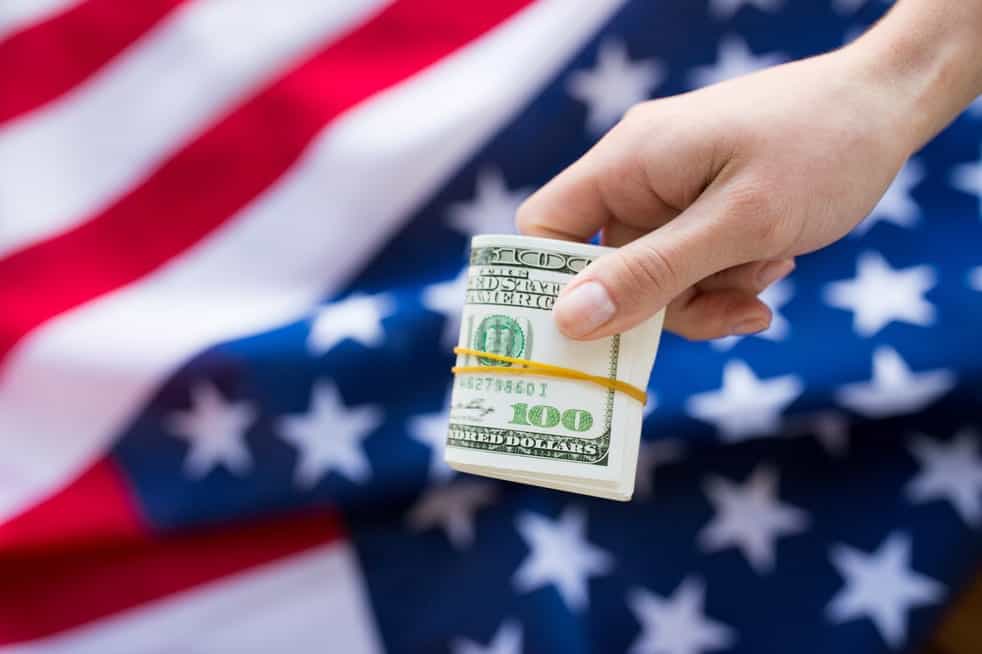Why Big Pharma Donates Money to Opioid Advocacy Groups
It raises questions when nonprofit opioid advocacy groups are being funded by pharmaceutical companies. These nonprofit organizations are set up as a way to protect patients’ rights. They also work hard to ensure patients get excellent care and treatment. There are many types of patient advocacy groups. However, those who help addicted patients access opioid drugs for treatment are under speculation. New research has shown that many opiate advocacy groups are receiving funds from drug companies. This is a serious conflict of interest that must be investigated for a number of reasons.
What do Opioid Advocacy Groups Do?
Opiate advocacy groups are tasked with the goal of making opioid addiction treatment available to all patients. These are drugs that have been created for the sole purpose of treating addiction. There are many drugs that are often prescribed to treat addiction. Among them are:
- Methadone
- Suboxone
- Subutex
- Naloxone
- Campral
- Baclofen
Interestingly enough, Braeburn Pharmaceuticals is the manufacturer of Probuphine. Probuphine is a buprenorphine implant that is often used to treat opioid addictions. It was discovered that this company is a charitable contributor for Advocates for Opioid Recovery.
About Advocates for Opioid Recovery
On the Advocates for Opioid Recovery website, visitors are met with a stark statement. It reads: Every 19 min. a person dies from the cycle of opioid addiction. Their website goes on to cite other such harrowing statistics. Readers learn that:
- Opiate overdose is the #1 cause of accidental death in the United States.
- In 2014, 47,000 people died from a drug overdose.
- This is a 200% increase from opioid-related deaths in 2000.
- 85% of the time, traditional drug rehab treatments lead to relapse.
- Medication appears to be the key to long-term addiction recovery.
For this and many other patient advocacy groups, their goal is simple. They aim to make sure addicts have access to medications that will aid in their recovery from addiction. Advocates for Opioid Recovery is a nonprofit organization that is headed up by names most people recognize. Newt Gingrich is one founder of the organization. His focus is on research, wellness, and prevention. Congressman, Patrick J. Kennedy is known as the country’s leading voice on addiction. Finally, Van Jones is known for his commitment to social and environmental justice. These three men have done their best to pave the way toward better addiction treatment for patients. However, what is seen on the surface is not always a direct reflection of what’s happening behind the scenes. Opiate advocacy groups like this one should play an important role in addicts all over the country. It is their job to fight for justice and to bring about the best possible treatment methods. Many would say that Advocates for Opioid Recovery have done just that. Others would say that what they have done is pull the wool over American’s eyes.
A Deep, Dark, Funding Secret
A recent study was conducted on 104 of the largest nonprofit organizations in the country for patient advocacy. This study included opioid advocacy groups like this one. Their findings were significant. Of the 104 that were investigated, more than 8 out of 10 get financial support from drug companies. Some also receive support from medical device companies and biotechnology companies. Additionally, more than a third of them have at least one industry representative as a part of their governing body. 12% of these advocacy groups have an industry official leading the board. The research team from the University of Pennsylvania had this to say about the study: “Concerns have been raised that industry-supported patient-advocacy organizations have spoken out for access to drugs with questionable therapeutic benefit…” Clearly, this is a problem. It’s one thing for Big Pharma to be funding opioid advocacy groups. It’s quite another for the financial support to be kept under lock and key. Why is this such a big secret?
The Hidden Agenda for Drug Companies That Financially Support Opioid Advocacy Groups?
One answer to that question might be that there appears to be a hidden agenda for drug companies. If they can fund these opioid advocacy organizations, the organizations will advocate for the use of their medications. This, in turn, increases their profits. It might seem like a shallow way to think, but many people believe the idea has merit. In fact, Newt Gingrich denied any knowledge of who provided financial support to the organization. It was found that Braeburn Pharmaceuticals was a large backer. The company disclosed a $900,000 charitable pledge to Advocates for Opioid Recovery. History assists in raising some eyebrows about this latest discovery. In fact, it wasn’t too long ago when the cost of EpiPens hit an all-time high. Patients were in an outrage over the increased prices for drugs that they desperately needed. As it turned out, most opioid advocacy groups turned a blind eye to the controversy. In fact, they seemed to find ways to promote it instead. Why? Many believe it is due to the need for increased funds.
The Truth About Opioid Recovery Advocacy Groups
As the investigation continued, it was found that only 12% of the opioid advocacy groups posted conflict-of-interest policies online. The other 88% of them had no such policies, which is apparent because of the discoveries that were made. Every organization’s annual budget was more than $7.5 million. For many of them, they weren’t forthcoming about their revenue sources. They were also secretive about who they allowed sitting on their boards. 40% of these groups received at least $1 million per year from drug companies and other industry businesses. One organization admitted to receiving as much as 83% of its annual revenue from drug companies or device companies. Opioid advocacy groups should be the voice of the patients. They should be conducting relevant research to form their opinions. They should not be following any money trail provided by Big Pharma. Yet, it seems as though that is exactly what most of them are doing.
The Growing Concern About Misuse of Drugs During Drug Treatment
Can it really be a coincidence that these companies produce drugs that are believed to treat addiction? Drugs like these are promoted heavily to drug addicts. In a way, they have been groomed to believe that medications are needed for addiction. This is because addiction is known to be a disease. Like other diseases, it only makes sense that medication would be necessary to treat them. Unfortunately, many patients have been misinformed. It is not always necessary to treat addiction by using medications. There are alternative methods to aid in addiction recovery without giving patients more addictive drugs.
Do Addiction Medications Lead to Recovery?
All across the United States, patients are going to drug rehab. When they go, the vast majority of them are being exposed to addiction medications. The question is, does it make a difference in their recovery rates? Research suggests that it does not. In fact, The National Institute on Drug Abuse states that between 40% and 60% of patients will relapse. More often than not, patients who take detox drugs for their addictions have a higher rate of relapse. The question is, why are they so popular? Many have not accepted the fact that there are other methods that are appropriate for treating addiction. Holistic methods offer better long-term outcomes than medication detox. Even so, there is no additional money in long-term recovery. The money is in relapses and the need for ongoing treatment. It’s possible that this is at the heart of the agenda for most patient advocacy groups. It’s certainly at the heart of their funders.
What Does the Future Hold for Opiate Advocacy Recovery Groups?
This question is a difficult one to answer. The fact is that we don’t know yet. It’s hard to say whether or not something will be done about these nonprofit opiate advocacy groups. Still, doubts are in place, and probably will continue to be for a long time. Are they really working hard for patients’ best interests? Can patients trust their recommendations when they’re being funded by drug companies? Anyone who supports one of these organizations should beware. Most likely, their campaigns are not in your best interests. It’s much better to place your trust in organizations that clearly state their commitment to refraining from conflicts of interest. Additionally, detox drugs do have their place in opioid addiction treatment programs. Does that mean all patients need them? No, it does not. Still, the secrecy of this discovery will continue to raise eyebrows for years to come.
Sources:
- (5, March 2017). High-Profile Nonprofit Opioid Advocacy Group Secretly Funded by Pharmaceutical Company. Retrieved from: https://nonprofitquarterly.org/2017/03/06/high-profile-nonprofit-opioid-advocacy-group-secretly-funded-pharmaceutical-company/
- (2, March 2017). You Are What You Eat: 80% of Patient Advocacy Groups Take Money from Drug and Medical Industries. Retrieved from: https://nonprofitquarterly.org/2017/03/02/eat-80-patient-advocacy-groups-take-money-drug-medical-industries/
- (December 2012). How effective is drug addiction treatment?. Retrieved from: https://www.drugabuse.gov/publications/principles-drug-addiction-treatment-research-based-guide-third-edition/frequently-asked-questions/how-effective-drug-addiction-treatment




